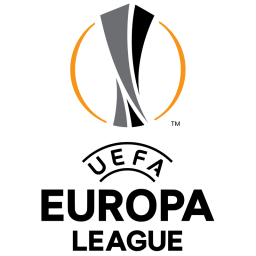
UEFA Europa League
European football competitions
Calendar and Results
- UEFA Europa League 2025 2026 Free Live streaming, Fixtures and Results
- UEFA Europa League 2023-24
- UEFA Europa League 2022-23
- UEFA Europa League 2021-22
- UEFA Europa League 2020-21
- UEFA Europa League 2019-20
- UEFA Europa League 2018-19
- UEFA Europa League 2017-18
- UEFA Europa League 2016-17
- UEFA Europa League 2015-16
- UEFA Europa League 2014-15
Information
Europa League: Comprehensive Guide
Welcome to the ultimate guide on the UEFA Europa League. Known as Europe's second-tier football competition, the UEFA Europa League has a rich history and offers thrilling football action. This guide covers everything you need to know about the league, including its history, format, qualification process, prize money, and more. Whether you're a die-hard football fan or just curious about the competition, this guide will provide you with all the essential information.
History
The UEFA Europa League, initially known as the UEFA Cup, was established in 1971. It was rebranded to its current name in the 2009-2010 season. The competition was created to give clubs that did not qualify for the UEFA Champions League a chance to compete on the European stage. Over the years, it has grown in prestige and popularity, becoming a significant tournament in European football.
Notable Moments
The UEFA Europa League has seen numerous memorable moments, from dramatic last-minute goals to underdog teams triumphing against the odds. Some of the most notable moments include Sevilla's record six titles and Fulham's unexpected run to the final in 2010.
Trophy
The UEFA Europa League trophy, also known as the Coupe UEFA, is one of the heaviest trophies in European football, weighing around 15 kilograms. It is awarded annually to the winner of the competition and is a symbol of European football excellence.
Design and Symbolism
The trophy's design reflects the spirit of the competition, with intricate details and a sleek, modern look. It symbolizes the achievement of conquering Europe's second-tier tournament and is highly coveted by clubs across the continent.
Format
The UEFA Europa League follows a format that includes qualifying rounds, a group stage, and knockout rounds. This structure ensures that a wide range of teams from various leagues have the opportunity to compete.
Group Stage
The group stage consists of 48 teams divided into 12 groups of four. Each team plays six matches (home and away), with the top two teams from each group advancing to the knockout stage. Additionally, the eight third-placed teams from the UEFA Champions League group stage join the knockout rounds.
Key Dates
- Group Stage: September to December
- Knockout Stage: February to May
Knockout Phase
The knockout phase begins with the round of 32, followed by the round of 16, quarter-finals, semi-finals, and the final. Each round is played over two legs, except for the final, which is a single match.
Qualification
Qualification for the UEFA Europa League involves several rounds, with teams entering at different stages based on their league's coefficient ranking and their domestic performance. This system ensures that a diverse range of teams from across Europe participate.
Qualifying Rounds
The qualifying rounds start in July and consist of three rounds followed by a play-off round. Teams from lower-ranked leagues enter in the early qualifying rounds, while higher-ranked leagues enter later.
Timeline
- First Qualifying Round: July
- Second Qualifying Round: July
- Third Qualifying Round: August
- Play-off Round: August
Prize Money
The prize money for the UEFA Europa League has been structured to incentivize performance and participation. Winning the tournament not only brings glory but also significant financial rewards for the clubs involved.
Prize Breakdown
- Group Stage Participation: €2.92 million per team
- Group Stage Win: €570,000 per win
- Group Stage Draw: €190,000 per draw
- Round of 32: €500,000 per team
- Round of 16: €1.1 million per team
- Quarter-finals: €1.5 million per team
- Semi-finals: €2.4 million per team
- Final Runner-up: €4.5 million
- Champion: €8.5 million
Records and Statistics
The UEFA Europa League has seen many impressive records and statistics that highlight the competition's intensity and excitement. From top scorers to most successful clubs, these records add to the rich history of the tournament.
Top Scorers
- Radamel Falcao (17 goals in a single season)
- Henrikh Mkhitaryan (25 goals overall)
- Aritz Aduriz (31 goals overall)
Most Successful Clubs
- Sevilla: 6 titles
- Inter Milan: 3 titles
- Juventus: 3 titles
Conclusion
The UEFA Europa League continues to provide thrilling football action and opportunities for clubs across Europe to compete on the continental stage. With its rich history, inclusive format, and significant prize money, it remains one of the most exciting tournaments in European football. Stay updated with fixtures, results, and all the latest news to ensure you don't miss out on any of the excitement this season.
FAQs
How can I watch the UEFA Europa League for free?
You can watch the UEFA Europa League through various free streaming options such as UEFA.tv, FuboTV, and BT Sport. Additionally, social media platforms and sports apps often provide live streams and updates.
When does the UEFA Europa League season start?
The season starts with the qualifying rounds in July. The group stage begins in September, and the knockout stage starts in February, culminating in the final in May.
What is the prize money for winning the UEFA Europa League?
The winning team of the UEFA Europa League receives €8.5 million, with additional financial rewards for progressing through each stage of the competition.
